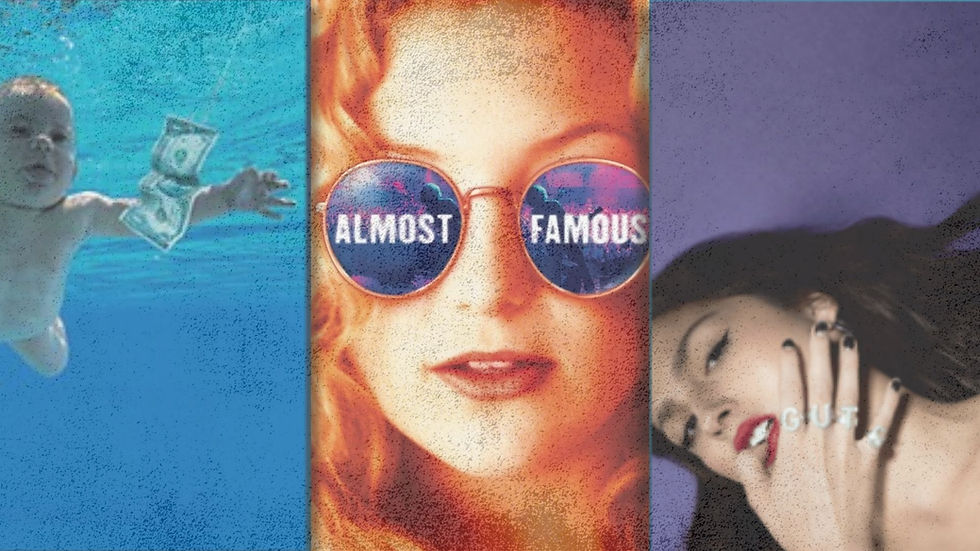The 'Almost Famous' Effect: When Critics Became Friends.
- Jade Read
- Jul 17, 2025
- 2 min read

The year 2000 saw the release of Almost Famous, a film that captured the beginning of a decline in music journalism and music itself. The story follows a young reporter who becomes embedded with a rock band, gradually losing his objectivity as friendships form. Today, that same dynamic plays out in real life: many music journalists hesitate to write honest and critical reviews because they fear losing relationships with publicists and/or access to artists. This softening of music journalism goes hand in hand with a decline in music’s creativity and cultural impact; artists face less pressure to impress listeners when critics stay silent.
Looking back to the release of Nirvana’s Nevermind, where Rolling Stone gave the album a modest 3 stars, shows how harsh critics were and how they told it how they saw it. Nevermind came out during the “Legendary 44 Days of Music” in the fall of 1991, a short period packed with some of the most iconic albums ever released such as; Red Hot Chili Peppers’ Blood Sugar Sex Magik, Metallica’s Black Album, and Pearl Jam’s Ten. Given the competition, it made sense that Nevermind received a mild review.

Today, the roles of critics look very different. While Sour, Olivia Rodrigo’s debut, deserves its flowers;that album could very possibly go down as a classic. But now this gives Olivia the idea that her second album was just as good. Guts didn’t have the same impact. It didn’t stay on the charts as long, and its singles didn’t dominate like before. Yet, Rolling Stone rushed to call it an “instant classic.”
Who is reading a review of an Olivia Rodrigo album? Olivia Rodrigo listeners. Therefore, critics will cater toward their audience, and fear not having readers.
This lack of critique makes artists think their weaker work is just as good as their best, and that’s a problem. It also keeps artists thinking that the bad music they have is good; and therefore they make more bad music thinking it’s good, diluting the music market. Fans get overloaded with music that all starts to sound the same, and the culture suffers for it.
Why has this happened? Many music journalists today are too close to the industry. They do not want to lose access or upset publicists, so they soften their reviews or give automatic praise. This kills honest criticism and turns journalism into promotional fluff.
Almost Famous depicted this tragedy years ago: the slow loss of objectivity in music journalism. Without critics holding artists accountable, music becomes safer and less daring. When every new album is deemed the best thing since sliced bread, music journalism stops serving the audience and starts serving the industry.
If we want music to grow and innovate, journalism has to stop being afraid to speak honestly. Artists should be held to high standards, or the culture will continue to weaken. Otherwise, it becomes cyclical,flooded with mediocre music that keeps getting praise.




Comments